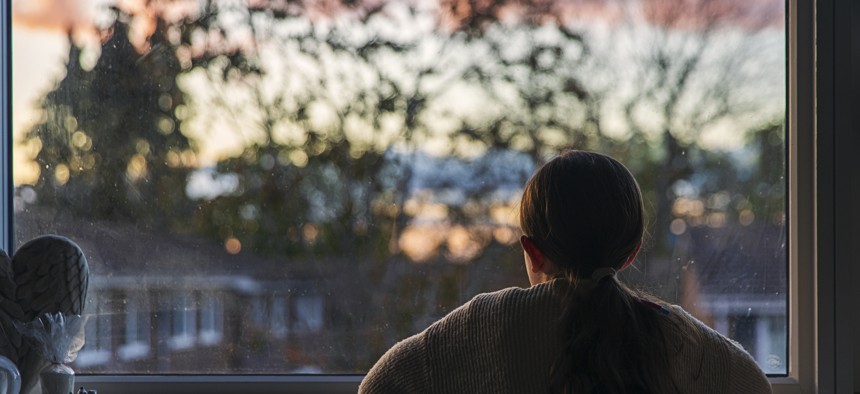Opinion
Kids and communities at risk without expanded mental health services
We need to invest in better training for anyone who comes in contact with children in mental crisis

Justin Paget - Getty Images
Recently, a teen living at JCCA’s therapeutic residential center left our campus while he was in crisis. He entered the quiet neighborhood bordering our facility and threatened a family who lives there. The family and adjacent community have every right to be concerned. I am too. I feel a great sense of responsibility to protect this teen, the other children and staff at our facility, and our neighbors. Frustratingly, we are hampered by an inadequate system of care for young people struggling with serious mental illness, a lack of service options, insufficient funding, and staff shortages, among other issues.
Over a 24-hour period, we brought this teen to a hospital three times asking that he be admitted for a psych evaluation, once at the request of a judge. Each time the hospital discharged him without evaluation, despite his concerning presentation and pre-existing mental health diagnosis. As this teen continued to spiral, we took him to a city hospital and begged for help. Despite not having an available bed, the hospital admitted the teen. We’re grateful, but we also know we lucked out – it shouldn’t be this way.
Hospitals and other secure medical facilities need to have more capacity and willingness to admit young people in serious distress. We also need more long-term solutions to support those children with the most acute needs. Our campus, and others like ours, are not designed for children in crisis, at least not with the state regulations and funding in place now.
We need to invest in better training for anyone who comes in contact with children so that they better understand the signs of a mental health crisis and what to do in those situations. We’re talking about emergency room staff, EMS, police, fire, and more. We also need more respect for the providers who know and understand each child and their conditions. Our staff’s opinions and pleas are continuously dismissed by emergency departments who think they know better or are unwilling to consider the gravity of the situation until a child harms themselves or others. It shouldn't be that way.
However, children with acute needs are not the only ones who require improved supports. At our residential facility, we care for children who have serious behavioral and cognitive difficulties, an I.Q. range of 50-79, and who struggle from significant delays in the development of their socialization and communication skills. Our campus is frequently the only New York state-licensed placement available to these children until they are old enough to move into an adult supported living arrangement. These children require around the clock support, the kind of care we can reasonably provide—when properly funded and staffed.
Unsurprisingly, funding hasn’t kept up with costs and demands for services. According to the Coalition for Behavioral Health, nonprofits saw a 77% increase in demand for services over the past few years. But even before the pandemic, there was a shortage of workers – the federal government estimated we had a national shortage of about 25,000 mental health workers.
One way forward is to increase investment in staff. The Council of Family and Child Caring Agencies recommends the state invest $17 million each year, for three years, in salaries for child welfare workers. We need better pay so we can attract the workers needed to support the level of demand for mental health services we are seeing.
The state has stepped in recently, adding more services and more dollars to children’s mental health programs. That’s commendable. As a result, we’ve expanded our continuum of care – from community-based mental health clinics to residential care and now just launched one of the state’s first youth ACT teams, which provides children with a comprehensive team of professionals to deliver highly-coordinated services. But often, these expanded initiatives still do not provide enough funding to attract and retain qualified providers. It’s clear that more needs to be done. We need everyone in the system – community organizations, clinics, hospitals, schools, and government agencies – on board, working collaboratively to ensure every child receives the care they need.
Ron Richter runs the 200-year-old nonprofit JCCA, which provides child welfare and mental health services to more than 17,000 children and their familieseach year, and has served as Commissioner of the Administration for Children's Services and a New York City family court judge. He is also a member of New York Nonprofit Media’s advisory board.
NEXT STORY: The fight for Just Pay
